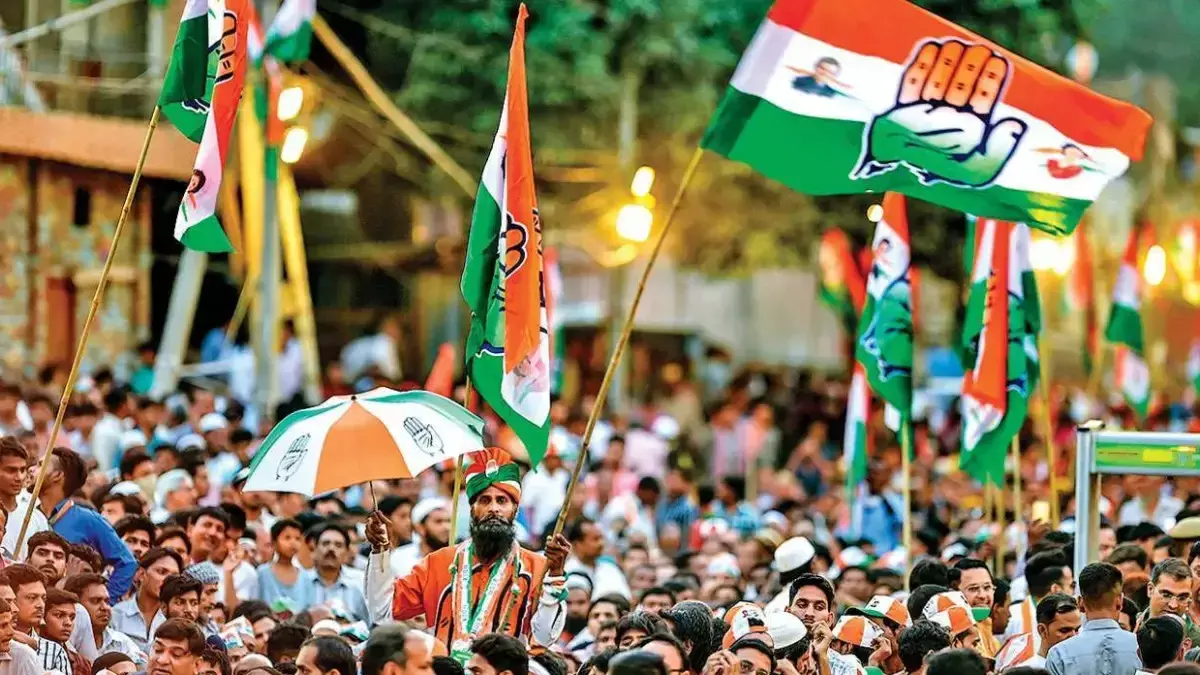No sane alternatives?
Against BJP’s dominant narrative, opposition parties are pursuing a narrow vision of somehow crossing the majority line collectively, rather than building an ideological-intellectual base

Indian politics has undergone significant changes on multiple fronts over the past three decades following the introduction of a new economic policy in 1991, which contradicts the Preamble of the Indian Constitution. These changes have primarily been driven by economic factors rather than political and ideological ones. Moreover, the changes have been intensified to create a ‘New India’ after 2014, contrary to the modern India pursued before 2014. It is essential to analyse the transformative politics of the country during this period without reducing it to a simplistic Modi versus Rahul or BJP versus opposition parties’ narrative. The changes transcend these narrow dichotomies.
In the name of democracy, Indian masses have been mobilized based on caste or religion to influence the election outcomes. This approach fosters division and conflicts, which contradict the provisions of the Indian Constitution. The mobilization of the masses has been primarily for electoral politics rather than developmental politics. Development politics requires intellectual political labour, while electoral politics relies on strategies that appeal to politically illiterate masses and their emotions.
Against this backdrop, Narendra Modi emerged on the national scene in 2014 as a messiah of development politics, setting aside the ideology of his party. Initially, the ruling establishment of the UPA II did not take him seriously, hoping that someone else would emerge as a significant player. However, through strategic planning and utilizing market forces, Narendra Modi strategically and systematically gained power and solidified his position within the party and the government. His persuasive and continuous communication with the masses made them believe in his narratives.
In 2019, Modi focused on ideological issues and made promises to the people through his manifesto, outlining his plans if he were to win the election. He emerged victorious and fulfilled many of the promises outlined in his manifesto. In governance, he tried to carve out a niche for himself, akin to Nehru, and began building an era of his own. If he secures victory in 2024, there is no doubt that he will be remembered as another builder of New India, following in the footsteps of Jawaharlal Nehru, the architect of Modern India. Modi's fearless actions until now indicate that he is leading the nation in a new direction, deviating from the policies of previous regimes.
The recent inauguration of the New Parliament building has set a new direction, although it has faced criticism from opposition parties that boycotted the event. However, Narendra Modi decisively carried out the entire project, sending a strong message. Modi's clarity of ideas and decisive action, coupled with his determination and fearlessness, keep him in constant motion, unstoppable by anyone. While the opposition is united against Modi, they lack the unity and determination required to oppose his actions effectively. Modi fearlessly faces the consequences, whether they are positive or negative.
On the other hand, the opposition parties lack a concrete program of action or a framework to consolidate their opposition and emerge as a viable alternative to the BJP's politics and governance. Over the past eight years, they have primarily relied on issuing statements against Modi and signing petitions one after another, submitting the same to the President of India, knowing fully well the consequences of their petitions. Have the opposition parties carried out politics in a united manner and launched any massive nationwide mass political movement in the past eight years? It is a question to be pondered over.
The current political trend suggests that the opposition parties are not genuinely interested in removing the BJP from power, as they have failed to develop counter-narratives to Modi's dominant narrative. To date, Modi's narrative resonates with the people, portraying all opposition parties as corrupt and focused solely on their families, protecting their ill-gotten wealth and personal interests. Many public intellectuals emphasize that the opposition lacks genuine concern for the country and its people. They have failed to effectively communicate their programs of action or alternative agendas to the public.
The ongoing political activities make it clear that bringing the opposition parties together at the same table is a challenging task, as evident from the initiatives of Bihar Chief Minister Nitish Kumar.
Arvind Kejriwal, Chandrasekar Rao, and Mamata Banerjee have their own calculations and aspirations, along with the challenges of managing their respective parties and governments. The Indian National Congress has no clue except fixing a target of reaching more than 100 seats from its strongholds, relying on the support of minority votes. The prevailing notion suggests that opposition parties are planning to contest the 2024 election individually, aiming to form a coalition government if they secure enough seats, similar to the UPA I and II eras. This presents a favourable opportunity for Modi to campaign vigorously, highlighting his achievements.
Within the Indian National Congress, many believe that if the party secures more than 100 seats, it will become the dominant party and its support would be crucial in forming a government in case the BJP falls short of an absolute majority. However, this indicates that the opposition is not interested in jointly formulating an alternative program or approach to politics and development. Developing such alternatives requires significant intellectual effort, time, and capacity. Instead, the opposition parties are focusing on arming themselves with ammunition to attack Narendra Modi, believing that this strategy alone can lead them to victory in the upcoming election.
To sum up, the opposition parties lack the intellectual foundation necessary to build a strong ideological base and develop a program that can mobilize the masses and effectively challenge the BJP in the 2024 election.
The writer is a former Professor and Rajiv Gandhi Chair for Panchayati Raj Studies, Gandhigram Rural Institute. Views expressed are personal




